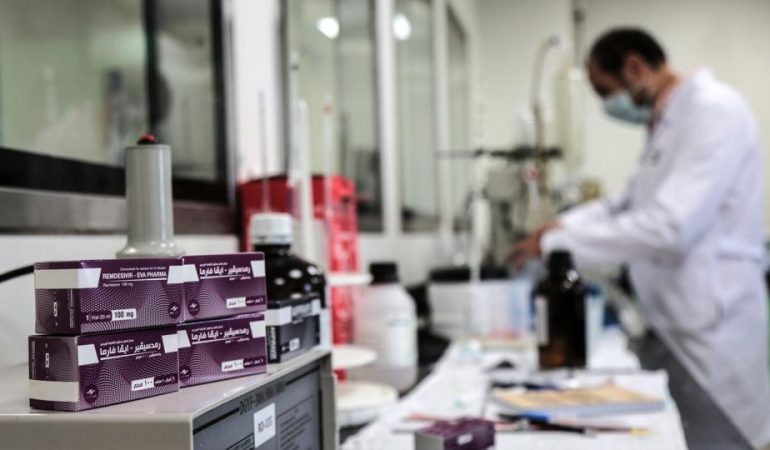The antiviral drug remdesivir had little or no effect in treating patients hospitalized with Covid-19, according to a study that has not yet been peer reviewed, but was coordinated by the World Health Organization and released on Thursday, casting doubt on one of the few promising treatments for the coronavirus.
Deeming it “the world’s largest randomized control trial on Covid-19 therapeutics,” the six-month long study of four drugs—remdesivir, hydroxychloroquine, lopinavir/ritonavir and interferon—proved “unpromising.”
“The main outcomes of mortality, initiation of ventilation and hospitalization duration were not clearly reduced by any study drug,” the study reads.
Over 11,000 adults across 30 countries and 405 hospitals were studied to come to these results.
Regimens involving the anti-malarial drug hydroxychloroquine have already been proven ineffective, but remdesivir appeared to be one of the few therapies to prove effective in combating Covid-19 symptoms.
The WHO’s results come just a week after a study published in the New England Journal of Medicine that found remdesivir shortened the time of recovery for adults hospitalized with Covid-19.
President Trump, who contracted Covid-19 and spent time at Walter Reed hospital upon suffering from symptoms, was administered remdesivir as part of his treatment.
KEY BACKGROUND
Remdesivir is the only specific drug with an emergency use authorization from the Food and Drug Administration. A vaccine for Covid-19 isn’t expected for approval until the end of the year, and even then, it will take months before there’s enough widespread distribution. Several countries like France are experiencing record daily case numbers in October. The United States continues to be the hardest hit. Despite having 4% of the world’s population, the country owns nearly 21% of all cases with almost 8 million and 20% of global deaths with around 218,000.
SURPRISING FACT
The gains Gilead experienced in the stock market during the pandemic have all but dissipated. Its price rose as much as 29% since the start of the year before falling 3% below its position in January.
"Forbes Georgia-ის სარედაქციო ბლოგპოსტების სერია "როგორ გამდიდრდა“ და "საქართველო რეიტინგებში".














